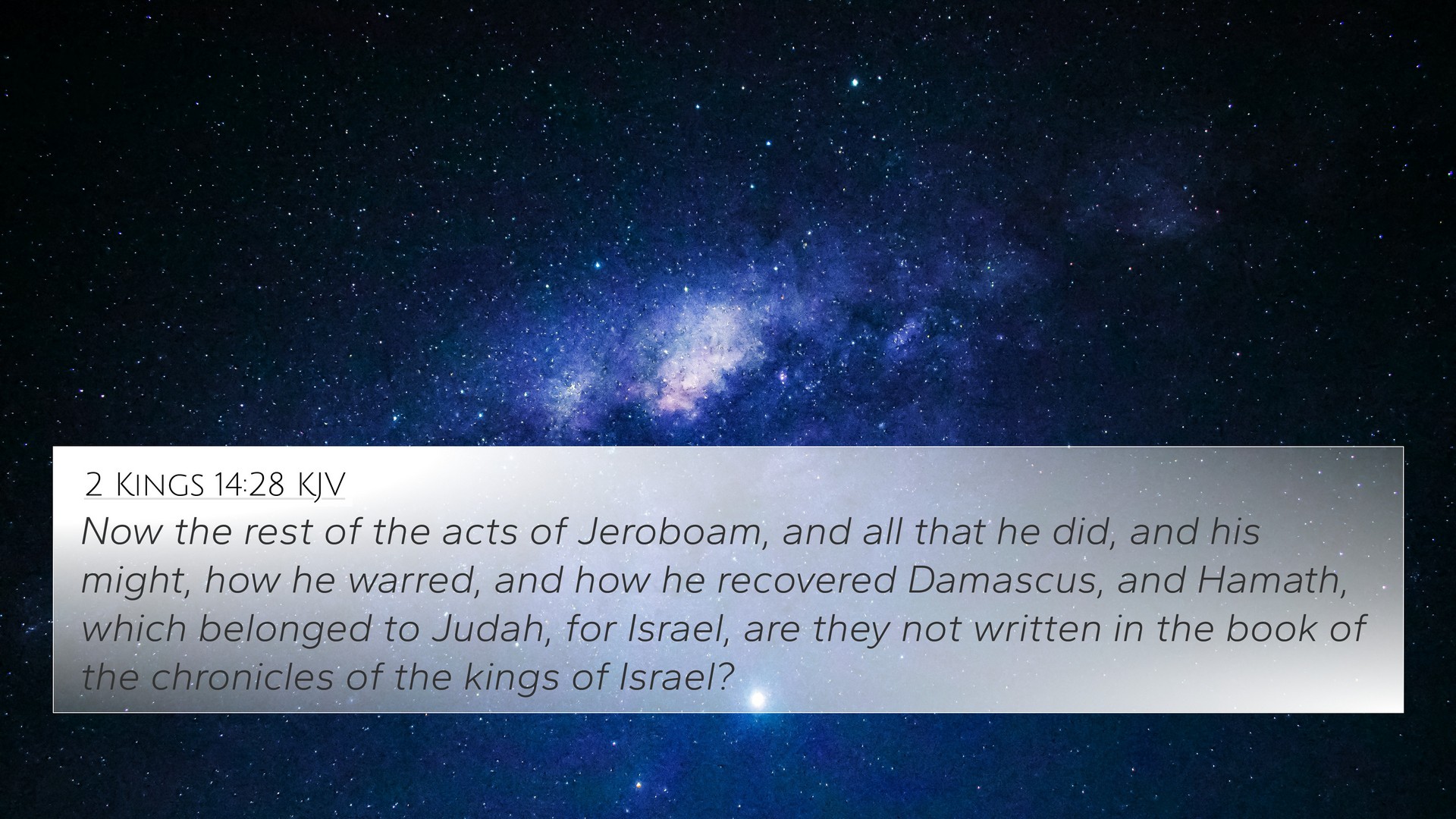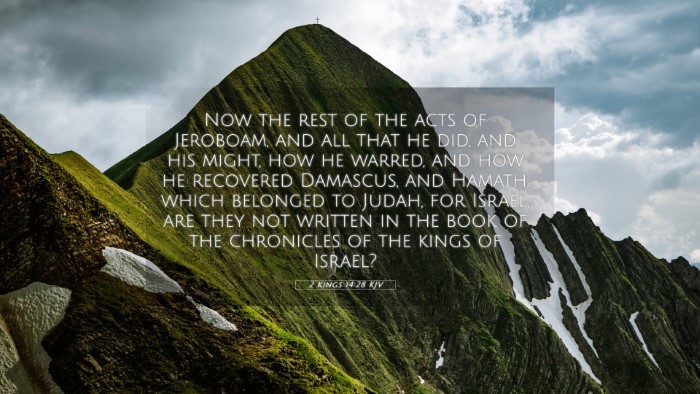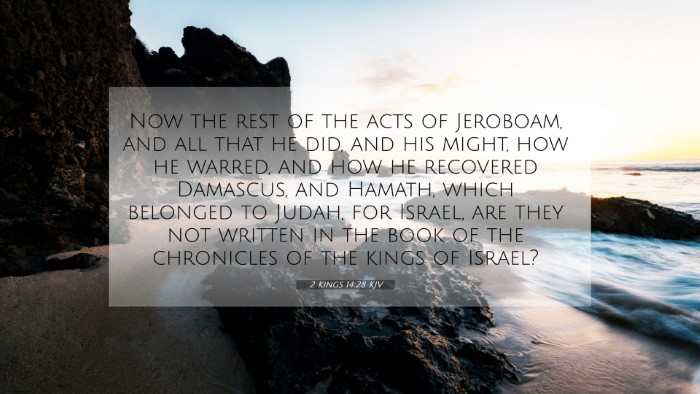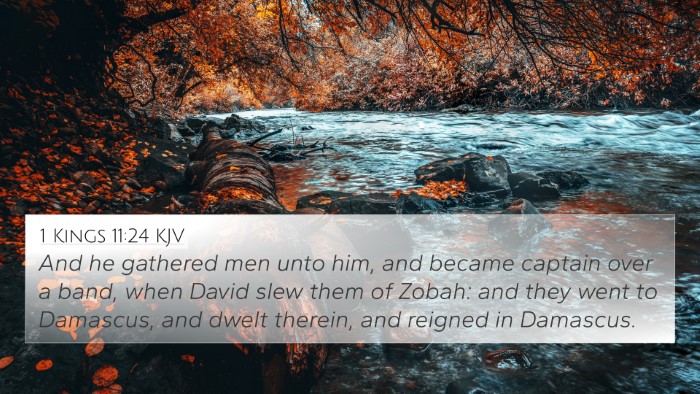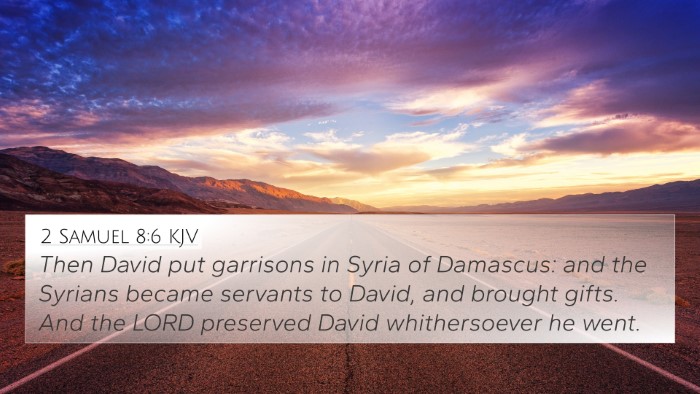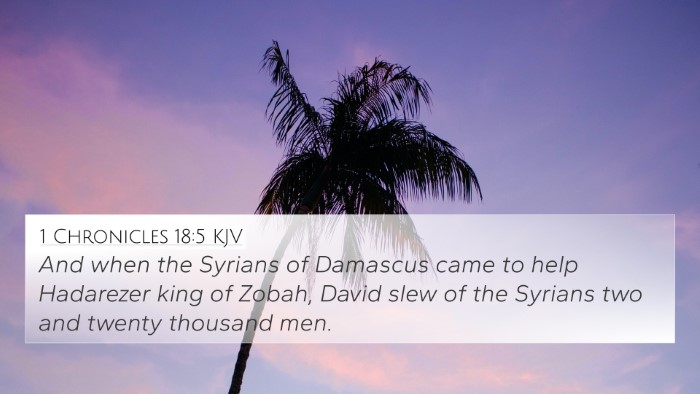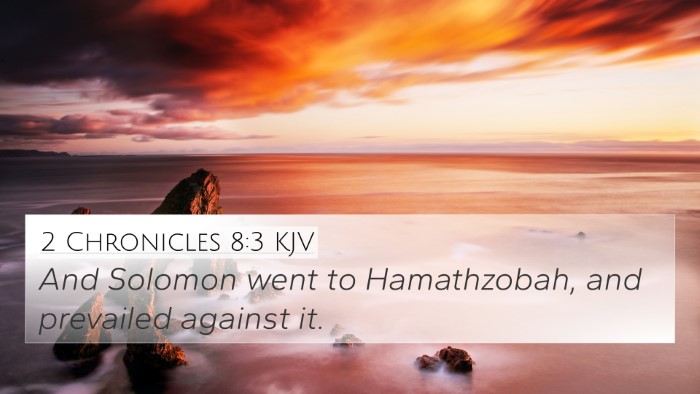Understanding 2 Kings 14:28
2 Kings 14:28 discusses the reign of Jeroboam II, highlighting his significant role in Israel's history. The verse states:
"Now the rest of the acts of Jeroboam, and all that he did, and his might, how he warred, and how he recovered Damascus, and Hamath, which belonged to Judah, for Israel." (2 Kings 14:28 KJV)
Verse Meaning and Insights
This verse wraps up the account of Jeroboam II's reign, indicating an end to the specific acts of a king who was instrumental in restoring Israel's fortunes. The commentaries provide various insights into its meaning:
- Matthew Henry:
Henry emphasizes that Jeroboam II’s leadership was characterized by both military might and restoration. He notes how Jeroboam's conquests were significant, particularly the recovery of territories that were essential for the nation of Israel.
- Albert Barnes:
Barnes highlights that Jeroboam II’s actions were not just about warfare; they signal a time of prosperity for Israel. He reflects on how Jeroboam's recovery of lands signifies a divine favor granted upon Israel during a period of moral decline.
- Adam Clarke:
Clarke mentions that the reference to the rest of the acts of Jeroboam suggests a larger narrative of the king’s accomplishments, hinting at the perks of kingship amid socio-political turbulence. Clarke also elaborates on the geographical significance of Damascus and Hamath.
Cross-References Relevant to 2 Kings 14:28
Understanding this verse benefits from exploring its connections with other biblical texts. Here are some notable cross-references:
- 2 Kings 13:22-25: Discusses the previous king's military context, offering insight into Jeroboam's challenges and victories.
- 2 Kings 15:1-2: Focuses on the subsequent reign of Azariah, which allows readers to consider the enduring legacy of Jeroboam II.
- Amos 6:1-7: Views the state of Israel during this economic prosperity while critiquing their spiritual condition.
- Hosea 1:1: A prophetic perspective that reflects on the implications of Jeroboam's leadership on future generations.
- Zechariah 1:1-6: Sheds light on the historical context of Israel post-Jeroboam, highlighting the covenant theme.
- Matthew 1:12: Connects Jeroboam's lineage to the genealogy of Christ, showing the significance of his reign over time.
- Luke 4:25-27: Jesus references the times of Elijah, showing the spiritual parallels in Israel's history between the old and the new.
Analyzing the Thematic Connections
Through comparative analysis, it is evident that the narrative of Jeroboam II illuminates key biblical themes:
- Divine Favor: Jeroboam's victories indicate God's temporary favor amidst the idolatry that marked much of Israel's history.
- Restoration: The acts of recovering territories signify not merely physical land but spiritual restoration as scripturally necessary for God's people.
- Legacy: Understanding the historical impact of Jeroboam II helps answer broader questions regarding God's design in the lineage leading to the Messiah.
Conclusion
The verse 2 Kings 14:28 encapsulates a significant moment in Israel's history. By studying the contexts and connections through biblical cross-referencing, we can grasp a deeper understanding of God's actions and intentions throughout the Old Testament.
Further Study Suggestions
For those looking to engage in deeper study and connect more verses related to 2 Kings 14:28:
- Utilize a Bible Concordance to find related verses and themes.
- Explore Bible Reference Resources available in your study materials.
- Consider using Cross-Reference Bible Study Guides to identify themes across the text.
In conclusion, linking Bible scriptures provides an enriching framework for understanding the complex narratives within the Bible. Engage in the inter-Biblical dialogue as you study these connections to enrich your faith and understanding.
